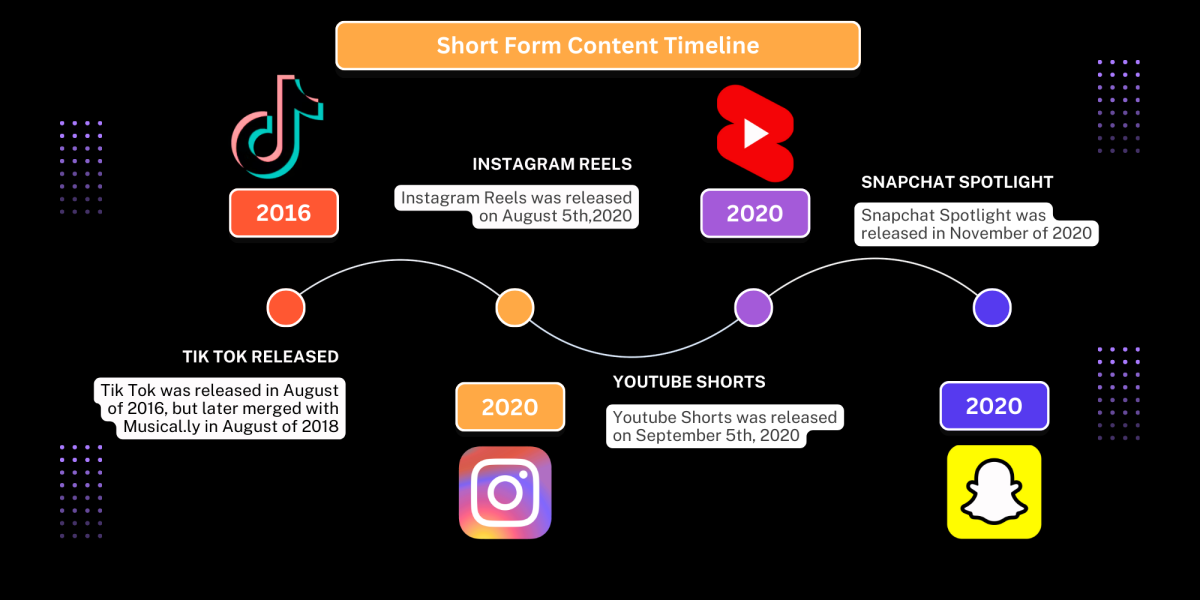School teaches many subjects. Math, science, English, art, and so on. But there is another lesson that all students should be taught: How to study.
Studying is different for everyone; some need to study for hours while others hardly need to study at all. A 2013 scientific study called “Improving Students’ Learning With Effective Learning Techniques” published in “Psychological Science in the Public Interest,” evaluated the 10 most commonly used learning techniques. It concluded that highlighting, rereading, summarization, keyword mnemonics (the use of keywords to help remind students of course material), and imagery use for text learning (creating mental images to remind students of material) were among the least effective study techniques. So with that in mind, it is necessary to find some alternatives to your studying habits.
The most important factors to studying are time management and sleep. Rasmussen College recommends to study in patterns: Do 30-50 minutes of studying, followed by a 10-minute break. This should avoid the last-minute cramming. Mrs. Laura Akers, a teacher involved in the PAWS program at LHS, helps students remain organized and prepared every day. She provided a few tips of her own when studying for finals: “I would recommend that students start preparing for finals exams a month before they happen. The first thing they should do is organize their worksheets and handouts. Once that is done, I would suggest making a list of topics that were challenging when they were covered in class. I would then take this list and seek out my teacher for help reviewing the concepts that I didn’t understand,” said Mrs. Akers.
Getting the right amount of sleep before a big test is just as important as preparing for it. A lack of sleep can hinder learning, so an average of 6-8 hours per night is essential to successful test taking. It is said that losing even one night of sleep can impair reasoning and memory for up to four days.
Studying before bed can be beneficial as well. Sleep expert Dan Taylor claims that studying the most challenging material right before sleeping makes it easier to recall the next morning. He also warns that early morning cramming is dangerous to your memory. Waking up extra early can disrupt the REM sleep cycle that’s crucial for solidifying memory.
According to the study mentioned earlier, highlighting is one of the most popular methods of studying, but little do students know that highlighting is ineffective. The ever-popular strategy of highlighting may even get in students’ ways, leading them to emphasize individual facts rather than make connections between concepts.
Ms. Melissa Gorski, an English teacher at LHS, shared her prefered method of studying when she was in school: “I made note cards all the time. I liked the note cards because it was easy for me to study from. I could flip them back and forth quickly. I could quiz myself in different ways. I also liked them because they were easy to carry with me. So, before the test, I could pull them out and quickly flip through them. It was a nice way for me to see which ones I knew, and which ones I didn’t know. I would make piles of the ones I knew and piles of the ones I didn’t, and as I started to see myself have more in the pile I did know, that really gave me the confidence going into the test,” said Ms. Gorski.
Exercise is also a key aid to learning. The New York Times states that physical exercise improves learning ability by growing new neurons and slowing (or even reversing) cognitive decay. So don’t get too comfortable; get up every so often and move around, or go for a walk. Anything you can do to get active will help.
Believe it or not, food can have a major effect on test performance. WebMD provided a list of “brain food” to eat while studying and before a test to enhance memory. Blueberries can significantly improve learning capacity and focus. Fish, such as salmon, are rich in omega-3 essentialfatty acids, which are essential for brain function. Avocados can lower blood pressure and reduce stress levels. Freshly brewed tea or coffee contains caffeine, which can boost brain power by enhancing memory, focus, and mood, but drink it in moderation! Too much caffeine can throw off your sleep cycle. Even dark chocolate has powerful antioxidant properties and contains several natural stimulants, including caffeine, which enhances focus and concentration, and stimulates the production of endorphins, which helps improve mood.








